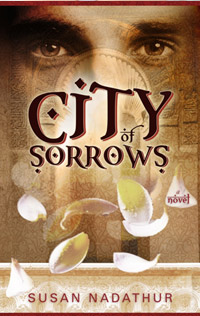Have you ever noticed how boring perfect people are? We all know one or two of these super perfect, super boring individuals. They are the people who never seem to make a mistake, who go through life without any major mishaps or idiotic indiscretions. While sometimes—when our own lives are chaotic or out-of-control—we may want to be like these people. Most times, the saner times, we’re too busy being stupid, impulsive, clearly imperfect, and definitely not boring.
 One of the least “not boring” people to scandalize the tabloids since his rise to fame in the early 1980’s is the British singer/song writer Boy George.
One of the least “not boring” people to scandalize the tabloids since his rise to fame in the early 1980’s is the British singer/song writer Boy George.
From his flamboyant dress to his heavy makeup, George O’Dowd has done almost everything in his power to insure that he is not—and never will be—mindlessly boring. So why then, I wonder, is his second book, Straight, at times so … okay, I have to say it: boring. Not all parts, some were quite intriguing. But, whereas Take it Like a Man (George’s first book published in 1995) was true to its title, Straight (his second book published in 2005) was not. In Take it Like a Man, George O’Dowd took the failures and mistakes of his youth and narrated them with adult introspection. In Straight, he talked bluntly about other people, about his own and others’ sexuality, about his work, but there was very little straight talk about the impact of his now middle-age choices on his adult life. Yes, there was some spiritual seeking, some insight and reflection, but I felt that most of the book was a holding back of what was really going on behind the make-up and the mask.
From the disappointments and frustrations of Taboo to life beyond Culture Club, Jon Moss, and addiction recovery, this book covered a lot of ground. But maybe it was the constant stream of new people on the page—names and faces many of us would never recognize—that detracted from the one story we were interested in reading: George’s.
That being said, one intriguing thing this book did for me was pique my interest in George’s semi-autobiographical musical Taboo. Through low resolution videos posted to You Tube, I was able to piece together the emotion of a life both flamboyant and painfully personal. It was the painfully personal that resonated with me. In one of the more poignant songs, “Stranger in this World,” I could hear the emotion pour through the lyrics “You always knew, didn’t you mother … I was a stranger in this world.” And the beauty and immediacy of the song “Petrified” that asks “when you’re alone, at night, do you run and hide? Are you strong, inside, are you full of pride, or just petrified?” is strikingly raw. Why? Because the human being behind these songs was gloriously, creatively imperfect.
George, when you are ready to write the book about the emotions that inspired “Petrified,” “Stranger in this World,” and “Talk Amongst Yourselves,” you will have the book the world is waiting to read.











